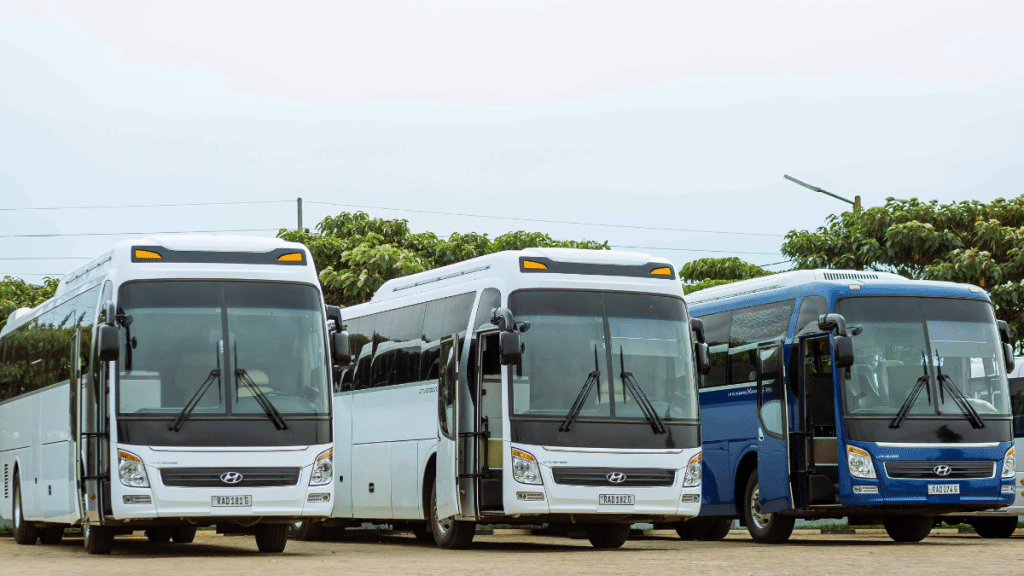Managing daily transportation for hundreds or even thousands of employees across multiple shifts is no longer a simple backend task, it’s a critical operational challenge for modern Indian businesses. With rising urban congestion, growing workforce expectations, and increasing emphasis on safety and punctuality, traditional transport setups are falling short. Today, employee transportation companies must evolve, and that evolution starts with smart fleet management.
From IT parks in Bengaluru to industrial corridors in Gurugram, fleet management companies in India are turning to technology to optimize operations, reduce costs, and improve employee experiences. But this shift isn’t just about going digital; it’s about becoming smarter, safer, and more scalable.
Here’s why fleet management has become a core investment for companies offering employee transportation services in India.
1. Managing Complex Operations at Scale
Large enterprises often run 24/7 operations, with employees working across departments and shifts. Manually managing hundreds of vehicles, routes, and drivers leads to delays, miscommunication, and operational inefficiencies.
Smart fleet systems help companies:
- Automated route planning based on real-time traffic
- Centralized scheduling and shift-wise rostering integrated with HR systems
- Maximize vehicle utilization and reduce empty rides
By streamlining these processes, companies improve time management, resource allocation, and service reliability.
2. Enhancing Safety and Compliance
One of the primary drivers for investing in smart fleet tech is safety, especially in industries where women and night-shift workers rely heavily on company-provided transport.
Modern fleet systems support:
- GPS tracking of every trip in real time
- SOS alerts and panic buttons in vehicles
- Driver background verification and digital attendance
- Automated route deviation alerts and speed monitoring
- Gender-sensitive routing and female escort assignments, as per compliance norms
By embedding safety into every trip, companies build employee trust and demonstrate their commitment to responsible operations.
3. Reducing Operational Costs
Fuel wastage, idle time, unauthorized detours, and poor route planning can eat into profits. Smart fleet management uses analytics and telematics to identify and eliminate these inefficiencies.
Some of the most tangible savings come from:
- Real time fuel usage tracking
- Preventive vehicle maintenance alerts to avoid breakdowns
- Avoiding over-reliance on ad hoc cab bookings
- Reducing driver overtime and billing errors
Fleet managers can access data-driven reports to make smarter financial decisions, a major reason why fleet management companies in India are prioritizing tech integration.
4. Real-Time Visibility and Transparency
Gone are the days of blind trust and manual logbooks. With live dashboards and automated trip reports, both companies and employees enjoy complete visibility into the transportation process.
This includes:
- Live ETAs and automated notifications for pickups and drop-offs
- Alerts on delays, detours, or vehicle issues
- Trip history logs for audits and compliance
- Driver and vehicle identification for every trip
Such transparency not only builds trust, and boosts accountability but also enhances the overall employee commuting experience; a key differentiator in competitive industries.
For a deeper dive into how real-time vehicle tracking enhances employee safety and transport accountability, this blog outlines key reasons it’s no longer optional.
5. Sustainability and Smart Resource Use
With rising environmental concerns and ESG commitments, businesses are seeking greener mobility solutions. Smart fleet systems support this shift by promoting shared cab rides and energy efficiency.
Eco-benefits of smart fleet tech:
- Ride pooling algorithms reduce the number of vehicles.
- Load balancing across routes minimizes emissions.
- Integration with EV fleets and charging infrastructure.
Adopting these practices supports CSR goals and showcases a company’s commitment to sustainability. Many forward-thinking businesses are also integrating electric vehicles into corporate commutes to further reduce emissions and align with ESG mandates.
6. Seamless Scalability for Growing Workforces
As companies expand, whether hiring 20 new employees or opening a new branch, transportation must scale without friction. Manual coordination can’t keep pace with such growth.
With smart fleet systems, businesses can:
- Quickly onboard new routes, drivers, and vehicles.
- Manage new locations from a centralized platform.
- Adapt transport operations to meet evolving workforce needs.
This is particularly valuable in fast-growing industries like tech, logistics, e-commerce, and manufacturing. Learn more about corporate fleet management services that help scale transportation efficiently while reducing costs and complexity.
Final Thoughts
The future of corporate transportation in India is being driven by data, automation, and safety, and fleet management companies in India are leading the charge. By investing in smart systems today, they’re ensuring more efficient, secure, and employee-friendly mobility tomorrow.
For companies that provide or depend on employee transportation services, partnering with a tech-enabled fleet provider is no longer just an upgrade; it’s a competitive necessity.
Because when every ride is smarter, every workday starts better.
